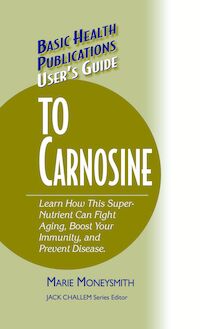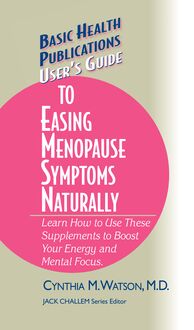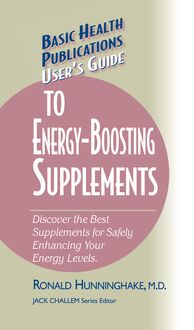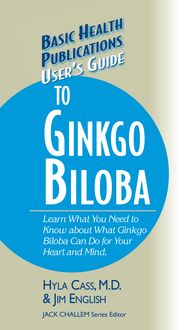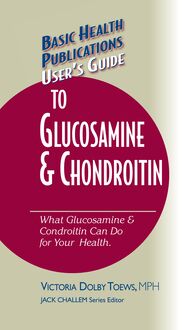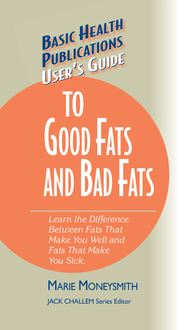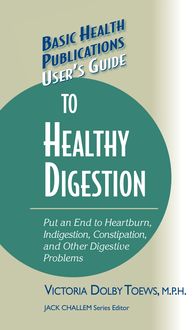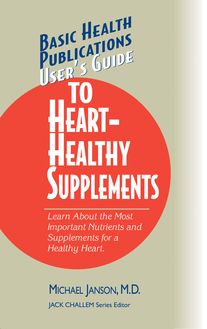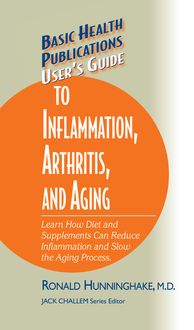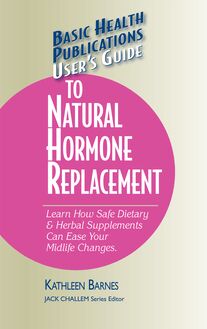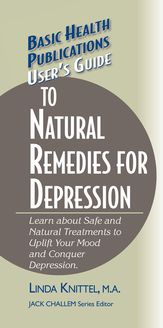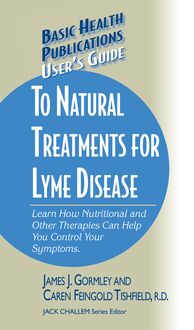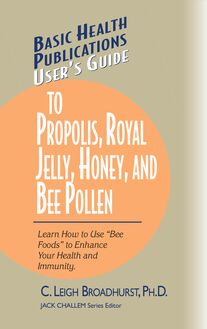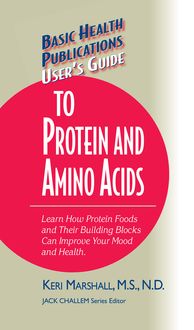-
 Univers
Univers
-
 Ebooks
Ebooks
-
 Livres audio
Livres audio
-
 Presse
Presse
-
 Podcasts
Podcasts
-
 BD
BD
-
 Documents
Documents
-
- Cours
- Révisions
- Ressources pédagogiques
- Sciences de l’éducation
- Manuels scolaires
- Langues
- Travaux de classe
- Annales de BEP
- Etudes supérieures
- Maternelle et primaire
- Fiches de lecture
- Orientation scolaire
- Méthodologie
- Corrigés de devoir
- Annales d’examens et concours
- Annales du bac
- Annales du brevet
- Rapports de stage
La lecture à portée de main
Vous pourrez modifier la taille du texte de cet ouvrage
Découvre YouScribe en t'inscrivant gratuitement
Je m'inscrisDécouvre YouScribe en t'inscrivant gratuitement
Je m'inscrisEn savoir plus
Vous pourrez modifier la taille du texte de cet ouvrage
En savoir plus

Description
Sujets
Informations
| Publié par | Turner Publishing Company |
| Date de parution | 01 janvier 2003 |
| Nombre de lectures | 0 |
| EAN13 | 9781591206620 |
| Langue | English |
Informations légales : prix de location à la page 0,0298€. Cette information est donnée uniquement à titre indicatif conformément à la législation en vigueur.
Extrait
The information contained in this book is based upon the research and personal and professional experiences of the author. It is not intended as a substitute for consulting with your physician or other healthcare provider. Any attempt to diagnose and treat an illness should be done under the direction of a healthcare professional.
The publisher does not advocate the use of any particular healthcare protocol but believes the information in this book should be available to the public. The publisher and author are not responsible for any adverse effects or consequences resulting from the use of the suggestions, preparations, or procedures discussed in this book. Should the reader have any questions concerning the appropriateness of any procedures or preparations mentioned, the author and the publisher strongly suggest consulting a professional healthcare advisor.
Series Editor: Jack Challem Editor: Carol Rosenberg Typesetter: Gary A. Rosenberg Series Cover Designer: Mike Stromberg
Basic Health Publications User’s Guides arepublished by Basic Health Publications, Inc.
8200 Boulevard East North Bergen, NJ 07047 1-800-575-8890
Copyright © 2003 by Victoria Dolby Toews, M.P.H.
ISBN 13: 978-1-59120-662-0
ISBN: 1-59120-085-7
All rights reserved. No part of this publication may be reproduced, stored in a retrieval system, or transmitted, in any form or by any means, electronic, mechanical, photocopying, recording, or otherwise, without the prior written consent of the copyright owner.
Printed in the United States of America
10 9 8 7 6 5 4 3 2 1
C ONTENTS
Introduction
1. Was It Something I Ate?
2. Rushing to the Toilet or Wishing You Could Go
3. When Food Bites Back
4. Feeling Green
5. Digestion-Related Organs: Liver and Gallbladder
6. Cancer of the Digestive System
7. Protecting the Stomach’s Lining
8. Inflammatory Bowel Disease: Crohn’s Disease and Ulcerative Colitis
9. The Final Stop
Conclusion
Appendices
A. Natural Digestive Aids
B. Guided Tour of the Digestive System
Selected References
Other Resources
I NTRODUCTION
T he enjoyment of a good meal is one of life’s pleasures. When the gut works right, as with most organs, we don’t notice it. Unfortunately, trouble can start brewing as soon as a mouthful of your favorite dish is swallowed. Faulty digestion causes a lot of unnecessary discomfort due to heartburn, bloating, gas, and sour stomach. Digestion problems also contribute to many gastrointestinal and related health problems, such as irritable bowel syndrome, peptic ulcer, and Crohn’s disease.
Everything we eat must be broken down, absorbed, assimilated, and finally eliminated. Problems at any of these steps bring the whole digestive process to a grinding halt, leaving the body vulnerable to nutritional deficiencies, toxic buildup, and overall poor health.
Digestion-related illnesses exert a considerable toll on comfort, health, quality of life, and your pocketbook. If you feel like food (and your body’s processing of it) has become your enemy, this book is for you.
You’ll learn how to prevent and manage indigestion in Chapter 1 , and Chapter 2 will cover the exceedingly common problems of constipation, diarrhea, and irritable bowel syndrome. Move along to Chapter 3 to learn about food allergies, lactose intolerance, celiac disease, and leaky gut syndrome, and then to Chapter 4 to relieve your nausea and vomiting. Chapters 5 , 6 , 7 , and 8 will review natural treatments for gallstones, liver health, hiatal hernia, cancer-risk reduction, ulcers, gastritis, and inflammatory bowel disease (Crohn’s disease and ulcerative colitis). Finally, you’ll want to turn to Chapter 9 if you’re concerned about diverticulitis, hemorrhoids, or excessive intestinal gas.
Located at the end of the book are two helpful appendices. Appendix A is a handy chart detailing all of the dietary supplements and herbs that are useful for digestive complaints. The amount to take for each supplement or herb, as well as potential side effects, are listed. In case your high-school biology is a little rusty, Appendix B provides a refresher of how the digestive process works.
Certainly, there is much to gain from reading this book cover to cover, but if you are currently suffering from a particular problem and want to get right to it, the following index will show you which chapter to turn to for your specific health complaint:
Health Complaint Chapter
Cancer of digestive tract . . . . . . . . . . . . . . . . . . . . . . . . . . . . .
6
Celiac disease . . . . . . . . . . . . . . . . . . . . . . . . . . . . . . . . . . . . . .
3
Colon therapy . . . . . . . . . . . . . . . . . . . . . . . . . . . . . . . . . . . . .
9
Constipation . . . . . . . . . . . . . . . . . . . . . . . . . . . . . . . . . . . . . . .
2
Crohn’s disease . . . . . . . . . . . . . . . . . . . . . . . . . . . . . . . . . . . .
8
Diarrhea . . . . . . . . . . . . . . . . . . . . . . . . . . . . . . . . . . . . . . . . . .
2
Diverticulitis . . . . . . . . . . . . . . . . . . . . . . . . . . . . . . . . . . . . . . .
9
Enema . . . . . . . . . . . . . . . . . . . . . . . . . . . . . . . . . . . . . . . . . . . .
9
Food allergies . . . . . . . . . . . . . . . . . . . . . . . . . . . . . . . . . . . . . .
3
Food poisoning . . . . . . . . . . . . . . . . . . . . . . . . . . . . . . . . . . . .
4
Gallstones . . . . . . . . . . . . . . . . . . . . . . . . . . . . . . . . . . . . . . . . .
5
Gas . . . . . . . . . . . . . . . . . . . . . . . . . . . . . . . . . . . . . . . . . . . . . . .
9
Gastritis . . . . . . . . . . . . . . . . . . . . . . . . . . . . . . . . . . . . . . . . . . .
7
Gastroenteritis . . . . . . . . . . . . . . . . . . . . . . . . . . . . . . . . . . . . .
4
GERD (gastroesophageal reflux disease) . . . . . . . . . . . . . . .
1
Heartburn . . . . . . . . . . . . . . . . . . . . . . . . . . . . . . . . . . . . . . . . .
1
Hemorrhoids . . . . . . . . . . . . . . . . . . . . . . . . . . . . . . . . . . . . . .
9
Hiatal hernia . . . . . . . . . . . . . . . . . . . . . . . . . . . . . . . . . . . . . . .
5
Indigestion . . . . . . . . . . . . . . . . . . . . . . . . . . . . . . . . . . . . . . . .
1
Inflammatory bowel disease . . . . . . . . . . . . . . . . . . . . . . . . .
8
Irritable bowel syndrome . . . . . . . . . . . . . . . . . . . . . . . . . . . .
2
Lactose intolerance . . . . . . . . . . . . . . . . . . . . . . . . . . . . . . . . .
3
Leaky gut syndrome . . . . . . . . . . . . . . . . . . . . . . . . . . . . . . . .
3
Liver health . . . . . . . . . . . . . . . . . . . . . . . . . . . . . . . . . . . . . . . .
5
Malabsorption . . . . . . . . . . . . . . . . . . . . . . . . . . . . . . . . . . . . .
3
Morning sickness . . . . . . . . . . . . . . . . . . . . . . . . . . . . . . . . . . .
4
Motion sickness . . . . . . . . . . . . . . . . . . . . . . . . . . . . . . . . . . . .
4
Nausea . . . . . . . . . . . . . . . . . . . . . . . . . . . . . . . . . . . . . . . . . . . .
4
Parasites . . . . . . . . . . . . . . . . . . . . . . . . . . . . . . . . . . . . . . . . . .
4
Ulcer . . . . . . . . . . . . . . . . . . . . . . . . . . . . . . . . . . . . . . . . . . . . .
7
Ulcerative colitis . . . . . . . . . . . . . . . . . . . . . . . . . . . . . . . . . . .
8
Vomiting . . . . . . . . . . . . . . . . . . . . . . . . . . . . . . . . . . . . . . . . . .
4
CHAPTER 1
W AS I T S OMETHING I A TE ?
E very once in a while about half of us Americans suffer from indigestion—an umbrella term to describe symptoms such as heartburn, upset stomach, bloating, gas, and slow digestion—and 25 million Americans face indigestion as a daily part of life. It doesn’t have to be this way, since there are many natural remedies for this common condition.
Causes of Indigestion
There is often no specific culprit that can be identified as a cause of indigestion. Other times, with a bit of sleuthing, you can determine the cause of your dyspepsia and take steps to remedy the underlying condition. All too often, indigestion is a condition of “too much,” such as eating too much, eating too quickly, or eating while under too much stress.
Dyspepsia Another name for indigestion.
Obesity and pregnancy can be instigators of heartburn, since extra weight can push the stomach contents back into the esophagus. Hiatal hernias, discussed in Chapter 5 , are another cause of indigestion. Medications that irritate the stomach lining (such as aspirin) can also be an underlying trigger of indigestion.
In some cases, indigestion is experienced on a persistent basis but is not related to poor diet choices or underlying diseases. This type of indigestion might be caused by a problem with the muscular squeezing action of the stomach. In such cases, a doctor might prescribe a medication to alter stomach motility (movement).
In itself, indigestion is merely a cause of discomfort but is not generally harmful to your health. However, indigestion can be a symptom of a serious disease such as peptic ulcer, gastritis, or gallbladder disease. If you suffer from chronic indigestion, it’s a good idea to consult a physician to rule out the possibility that it is a sign of a more serious condition.
Indigestion can be a sign of or mimic of other serious diseases. Please consult a doctor if your in digestion is accompanied by any of the following symptoms: vomiting, weight loss, or loss of appetite black tarry stools or blood in vomit severe pain in the upper right abdomen discomfort unrelated to eating shortness of breath, sweating, or pain radiating to the jaw, neck, or arm
Prevention Is the Best Treatment
Avoiding the foods or situations that seem to trigger a bout of indigestion is often the best and simplest way to treat this problem. An indigestion prevention plan should be based on a wholesome, low-fat diet. Fatty foods can lead to indigestion, since they take longer to dig
-
 Univers
Univers
-
 Ebooks
Ebooks
-
 Livres audio
Livres audio
-
 Presse
Presse
-
 Podcasts
Podcasts
-
 BD
BD
-
 Documents
Documents
-
Jeunesse
-
Littérature
-
Ressources professionnelles
-
Santé et bien-être
-
Savoirs
-
Education
-
Loisirs et hobbies
-
Art, musique et cinéma
-
Actualité et débat de société
-
Jeunesse
-
Littérature
-
Ressources professionnelles
-
Santé et bien-être
-
Savoirs
-
Education
-
Loisirs et hobbies
-
Art, musique et cinéma
-
Actualité et débat de société
-
Actualités
-
Lifestyle
-
Presse jeunesse
-
Presse professionnelle
-
Pratique
-
Presse sportive
-
Presse internationale
-
Culture & Médias
-
Action et Aventures
-
Science-fiction et Fantasy
-
Société
-
Jeunesse
-
Littérature
-
Ressources professionnelles
-
Santé et bien-être
-
Savoirs
-
Education
-
Loisirs et hobbies
-
Art, musique et cinéma
-
Actualité et débat de société
- Cours
- Révisions
- Ressources pédagogiques
- Sciences de l’éducation
- Manuels scolaires
- Langues
- Travaux de classe
- Annales de BEP
- Etudes supérieures
- Maternelle et primaire
- Fiches de lecture
- Orientation scolaire
- Méthodologie
- Corrigés de devoir
- Annales d’examens et concours
- Annales du bac
- Annales du brevet
- Rapports de stage

